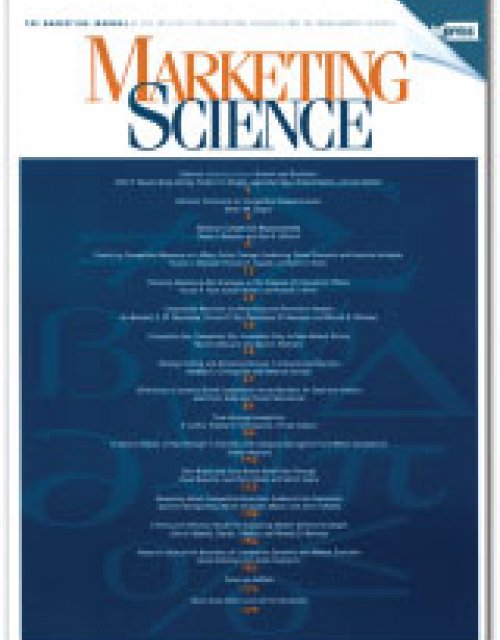Publication records
Subject(s)
Economics, politics and business environment
Volume
4
Journal Pages
30–32
Subject(s)
Human resources management/organizational behavior
Keyword(s)
careers, economic development, political economy, Russia
Purpose - The purpose of this article is to raise awareness of the dynamic character of career and its key attributes, and the embeddedness of their definitions and meanings in national social, political and economic contexts. Design/methodology/approach - Features of three recent distinct social, political and economic situations in Russia are used to explore the meanings of nine key career attributes introduced by the Western career literature. Findings - It was found that in Russia each of the nine key career attributes accommodates a different meaning compared with their original Western meaning, and that these meanings are continuously changing to reflect the current social, political and economic environment. In sum, this exploration revealed a dynamic character to career attributes, and their content changed depending on the underlying context. Research limitations/implications - Among key research implications are: a possibility of using Western career theories mainly as conceptual frameworks for studying careers in other countries; that current social, political and economic contexts need to be taken into consideration when studying careers in a particular country; and the 'intelligent career' concept can be used to study careers in various cultural contexts, and to examine the interdependence between career and a national culture. Originality/value - This paper examines the extent to which Western career concepts may be used to study careers in various countries around the globe. It notes the dynamic character of career and its related career attitudes. This paper also makes suggestions on how the 'intelligent career' concept can be used for exploring career meanings in a particular national setting. Finally, this paper looks at specifics of careers in Russia, which are still underrepresented in the literature.
With permission of Emerald
Volume
12
Journal Pages
68–85
Subject(s)
Economics, politics and business environment
Keyword(s)
energy policy, climate change
Energy is a central issue in the current European policy context. Europe faces a number of fundamental challenges. First, the ongoing process of global economic integration emphasizes the importance of having access to secure, reliable and cost-effective sources of energy. Since energy is an important input for much economic activity, it contributes towards the competitiveness of the European economy as a whole. Second, declining international reserves of fossil fuels are changing the world energy map and have started to increase global competition for scarce resources. Whether European countries will follow common or national sourcing strategies is of profound political significance for the EU. Last but not least, climate change is an issue of great international concern. The need for stricter environmental standards has become apparent and the willingness of European leaders to spearhead this reform at a global level has resulted in calls to start optimizing environmental policy instruments at EU level. Without a common policy the EU can hardly be a credible world player.
Pages
70
ISSN (Print)
1866–4016
Subject(s)
Strategy and general management
Keyword(s)
Konsolidierung, Consolidation Index, Energiebranche
Im Hinblick auf die endgültige Öffnung der europäischen Energiemärkte im Juli 2007 sehen sich die ursprünglich nationalen Versorger der Gefahr sinkender Marktanteile im Heimatmarkt, aber auch der Chance, das internationale Geschäft zu forcieren, gegenüber. Nachdem sowohl die deutschen als auch die ausländischen Energieversorger bereits in den 90-iger Jahren und verstärkt ab der Jahrtausendwende mit den Privatisierungen in Osteuropa international tätig wurden, befindet sich die Industrie nun in einer Phase der europäischen Konsolidierung. Zeichen hierfür sind die versuchte Übernahme von Endesa durch E.ON, die Enel als "weißen Ritter" auf das Spielfeld brachte, die gelungene Übernahme von Scottish Power durch Iberdrola oder von Gaz de France und Electrabel durch Suez.
Folglich stellt sich die Frage, ob die deutschen Energieunternehmen die Neuverteilung der europäischen Energiemarktanteile für sich nutzen können.
Zur Beantwortung dieser Frage sind drei Aspekte zu betrachten:
i. Haben die deutschen Energieunternehmen im Vergleich zu ihren europäischen Konkurrenten die nötigen Kompetenzen, um den europäischen Konsolidierungsprozess treiben zu können?
ii. Ist die Marktdefinition "Integrierte Strom-/ Gasunternehmen" für die Beantwortung dieser Frage die richtige Abgrenzung?
iii.Welche Implikationen erschließen sich daraus für die deutschen Energieversorger?
Pages
19
ISSN (Print)
1866–4024
Subject(s)
Marketing
Keyword(s)
production differentiation, marketing strategy, consumer behavior, pricing, cost of thinking, entry decision, consumer empowerment
Consumers aware of a new benefit will often experience uncertainty about its personal relevance or usage value. This paper shows that the decision to deliberate further to resolve this uncertainty and reach a polarized judgment of personal relevance critically depends on the posted price. In particular, a price above the consumer's initial willingness to pay might be thought provoking and enhance the perception of relevance with a certain probability. This behavioral mechanism is introduced formally and by way of an experiment with reference to the purchase of organic lettuce and fair-trade coffee. Accounting for the effect of price as a stimulus to think, a monopolistic firm should either over price ("transgressive pricing") or under price ("regressive pricing") in comparison to the consumer's willingness to pay. Under certain circumstances, the firm should also empower consumers with means that reduce the effort of deliberation.
© 2007 INFORMS
Volume
26
Journal Pages
118–129
Subject(s)
Product and operations management
Keyword(s)
manufacturing strategy, supply chain, new product development, innovation
Volume
2
Journal Pages
1–20
Subject(s)
Economics, politics and business environment
Secondary Title
Current competition law, vol v
Pages
23–44
ISBN
978–1–905221–06–6
Subject(s)
Strategy and general management
Keyword(s)
Competitive advantage, differentiation strategy, first movers, general management, Internet,; market share, resources, strategy, value innovation, web-based technologies
Launched in early 2005, Zopa is a peer-to-peer online brokerage that couples British residents who want to lend with those who want to borrow. The company represents a new business model in the retail financial services industry, and since Zopa is not technically a bank and does not lend money itself, the capital requirements to run the business are relatively small. Compared to a traditional full service bank Zopa concentrates on only a few steps of the value chain. This case study provides an overview of the financial service industry, especially banks, in the UK in 2006 and how Zopa, a value innovator, has developed a unique position in the market through an innovative business model. Rich data especially on banking trends are given. Additional data on key players in the industry are supplied. This data will enable students to develop a good understanding of the elements of a value innovation and how technologies have the potential to shake up an established industry structure and its key players. A focus is on the concept of value innovation and sustainable competitive advantage. The case can also be used to address the topic of how incumbent firms should respond to innovative new business models.
The case provides an overview of the financial service industry in the UK in 2006 and how Zopa, a value innovator, has developed a unique position in the market through an innovative business model. Rich data especially on banking trends are given. Additional data on key players in the industry are supplied. This data will enable students to develop a good understanding of the elements of a value innovation and how technologies have the potential to shake up an established industry structure and its key players. A focus is on the concept of value innovation and sustainable competitive advantage.
| buy now | buy now | buy now |
Subject(s)
Human resources management/organizational behavior
Keyword(s)
Executive education, leadership development, coaching, management science, job satisfaction, education, management retreats, organization, organizational behavior, organizational effectiveness
Volume
1
ISSN (Online)
2151-6561
ISSN (Print)
0065-0668
Subject(s)
Marketing
Keyword(s)
Befragung, Virtuelle Informationsbörse, Entscheidungsproblem, Prognose, Wissen, Informationsmarkt, Informationssammlung
Volume
60
Journal Pages
321–334

